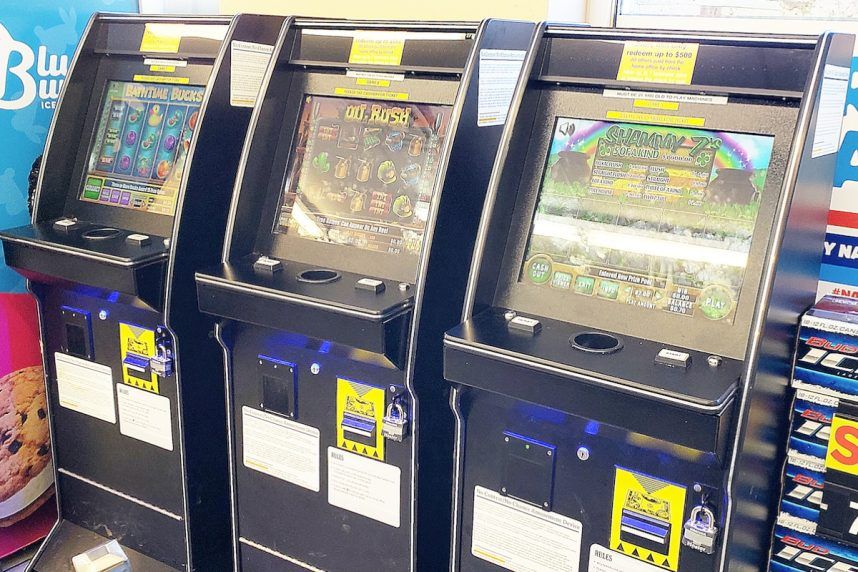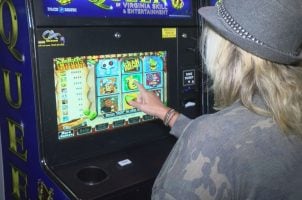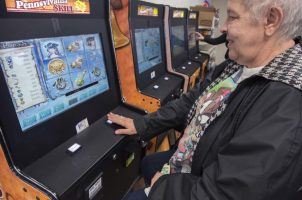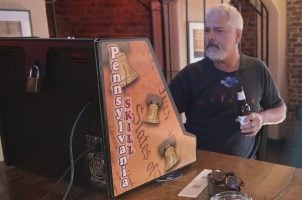Missouri Gaming Association Appeals Ruling on No-Chance Gaming Machines
Posted on: October 10, 2023, 09:46h.
Last updated on: October 10, 2023, 09:56h.
The Missouri Gaming Association (MGA) last week appealed a county circuit judge’s decision to toss the casino trade group’s lawsuit against a company that manufactures controversial gaming machines commonly found in convenience stores, restaurants, bars, and fraternal organizations.

The MGA represents the state’s 13 riverboat casinos statewide and in the Jefferson City capital.
A major concern of the state gaming industry is the ongoing spread of unregulated slot-like gaming terminals. The machines look, sound, and operate similarly to a slot machine found on one of the riverboats, but differ in that the outcome of the next play is displayed prior to the bet.
Dubbed “no-chance” gaming, the so-called “skill gaming” apparatuses, their supporters say, don’t constitute gambling because the outcome of the next spin is already revealed. Therefore, the backers argue, there is no element of luck.
Instead, players bet on a play they know will lose simply to advance the machine to its next pre-reveal outcome.
Federal Ruling Goes Skill Gaming’s Way
A federal judge in August dismissed a class action lawsuit brought against Torch Electronics, a leading provider of the no-chance machines in Missouri. The litigation contended that the unregulated machines wrongly target players susceptible to problem gambling, as well as underage persons.
US District Judge Brian Wimes ruled that the lawsuit didn’t have legal standing under the federal Racketeer Influenced and Corrupt Organizations (RICO) Act. Wimes determined that players voluntarily used the machines and would have eliminated their financial pains by simply “not playing.”
In separate litigation, the MGA filed a lawsuit against Torch Electronics on allegations that no-chance gaming constitutes illegal gambling and hurts its members’ business operations.
Torch Electronics is an illegal competitor and its illegal gaming devices are harming our members,” the MGA said in a statement.
Cole County Circuit Judge Daniel Green dismissed the MGA challenge last week. He also dismissed a lawsuit brought by Torch against the Missouri State Highway Patrol alleging harassment for its ongoing seizing of no-chance games from businesses and organizations where they’re commonly housed.
Green said he cannot singlehandedly grant Torch’s relief sought, which included an injunction for law enforcement to stop seizing its machines.
Dismissal of the injunctive claim for relief is also proper as the relief sought is outside the jurisdiction of this Court in which it is asked to invade/limit the exercise of legitimate police powers by the Defendant the Missouri State Highway Patrol,” Green ruled.
Green additionally said he lacks the authority to solely determine if Torch games are illegal enterprises on the MGA’s behalf.
Appeal Forthcoming
MGA officials believe the state court system is the appropriate setting to determine the legality of skill and no-chance games.
The Missouri Gaming Association filed an appeal today as we believe that the trial court erred because we have a right to bring an action to stop illegal competitors. We look forward to the decision being reversed, to trying our case, and stopping Torch’s illegal competition,” an MGA statement read.
Torch also plans to appeal Green’s ruling in its lawsuit against state law enforcement.
“We look forward to our day in court and a determination that these amusement devices are legal,” Chuck Hatfield, an attorney representing Torch, told the Missouri Independent.
Related News Articles
Most Popular
Casinos That Were Never Casinos
LOST VEGAS: The Strip’s First Fountain Show
Washington State Casino Reopens Weeks After Apparent Cyber Attack
Most Commented
-
End of the Line for Las Vegas Monorail
— April 5, 2024 — 90 Comments -
Cracks Emerging on Las Vegas Strip Says Analyst
— April 30, 2024 — 18 Comments -
Mega Millions Reportedly Mulling Substantial Ticket Price Increase
— April 16, 2024 — 10 Comments -
Caesars Open to Selling ‘Non-Core’ Casinos to Reduce Debt
— May 1, 2024 — 8 Comments
















Last Comment ( 1 )
Geesh. Those are slot machines and that is gambling stop lying to the public.